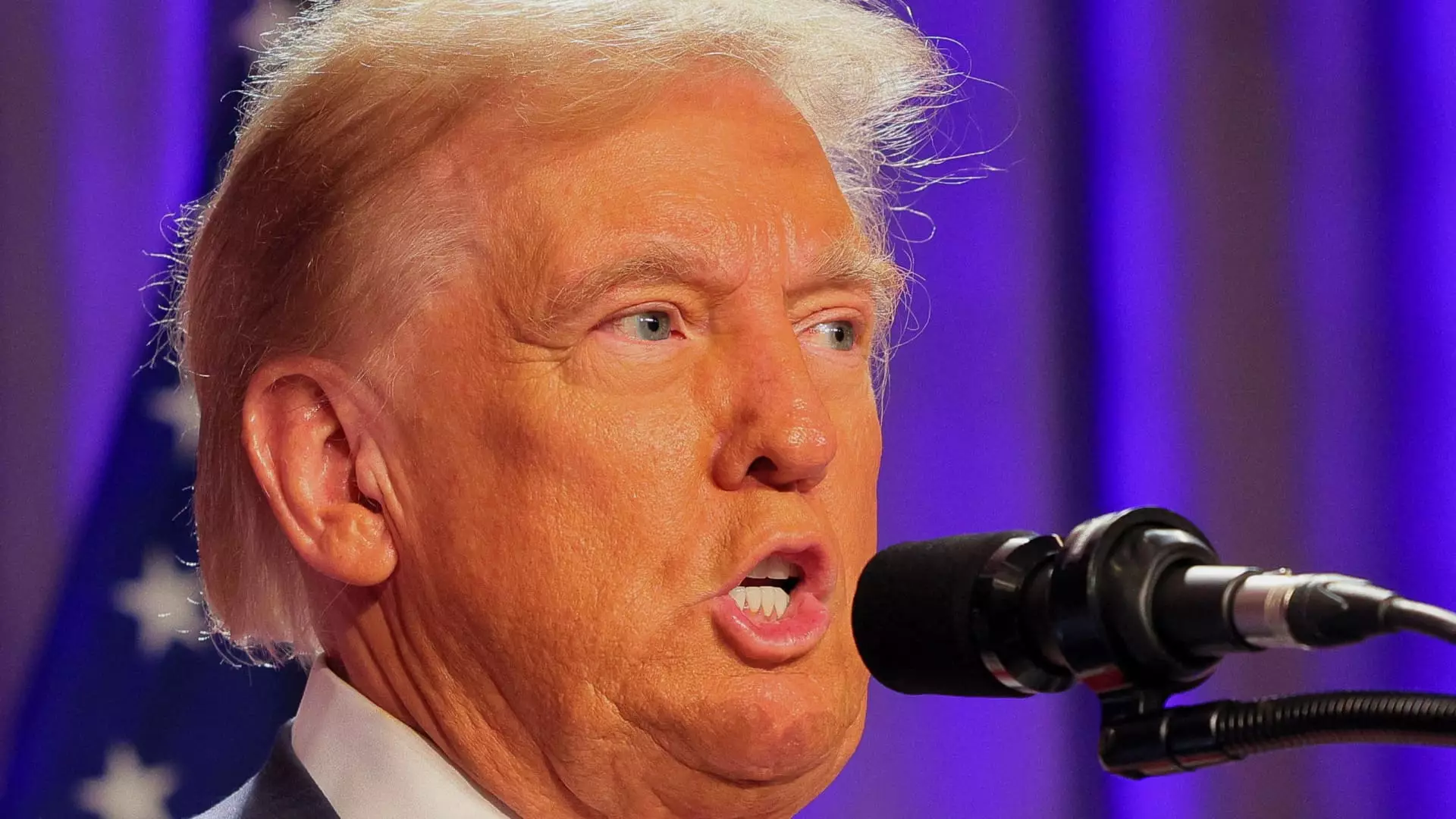In a recent interview with Kristen Welker on NBC’s “Meet the Press,” President-elect Donald Trump offered a glimpse into how his administration might reshape U.S. foreign relations, particularly concerning Ukraine and NATO. His comments not only underscore his evolving stance on military aid but also raise crucial questions about collective security and international diplomatic responsibilities.
During the interview, Trump indicated that military assistance to Ukraine might decrease under his leadership, revealing a significant shift from the assistance levels seen during the Biden administration. He criticized Europe’s financial commitment, arguing that it pales in comparison to the U.S. contribution of approximately $350 billion, while Europe has only contributed about $100 billion. This assertion underscores Trump’s broader narrative that European allies must bear a more significant share of the defense burden, particularly in light of the ongoing conflict with Russia.
Trump’s remarks echo similar sentiments he expressed during his first term, highlighting his long-standing skepticism about NATO’s burden-sharing arrangements. He maintained that the European nations must “equalize” their financial commitments, framing this as a critical prerequisite for the U.S.’s continued involvement in NATO. This perspective presents a stark contrast to traditional views on collective security, emphasizing a transactional relationship over mutual defense obligations.
Interestingly, Trump praised Ukrainian President Volodymyr Zelenskyy, calling him “maybe the greatest salesman of any politician that’s ever lived.” This characterization raises an important discussion about the nature of military aid. While it is commendable to acknowledge Zelenskyy’s effective communication skills in garnering international support, it suggests that Trump’s preference is to interpret this geopolitical context through a lens of salesmanship rather than an honest appraisal of Ukraine’s urgent needs amidst ongoing hostilities.
By implying that Zelenskyy’s personal effectiveness rather than the acute military requirements of Ukraine is responsible for the billions in aid raises concerns about the potential complacency in assessing threats in Eastern Europe. Such a reductionist view may lead to significant repercussions for regional security, should the U.S. reduce its support based on perceived diplomatic optics rather than actual military realities.
Following his recent meeting with Zelenskyy, Trump took to social media platform Truth Social to call for an immediate ceasefire and negotiations to resolve the conflict in Ukraine. His assertion that the war “should never have started” aligns with his broader inclination toward negotiation over military action, although skeptics may question his ability to deliver on such promises.
Trump has frequently claimed that he could negotiate an end to the conflict rapidly, leveraging his acknowledged relationships with international leaders, particularly Russian President Vladimir Putin. However, the effectiveness of such claims must be examined against the backdrop of escalating tensions in the region, where rapid diplomatic resolutions have proven extraordinarily challenging.
Moreover, Trump’s assertions that he and Xi Jinping communicate regularly about global issues such as Taiwan and Russia’s presence in Syria reveal a complex web of international relationships that may not yield straightforward solutions. His claim that he prefers to negotiate rather than commit to military intervention in Taiwan signals a potential pivot away from U.S. policy of providing unwavering support to allies in the face of aggression, marking a significant departure from previous administrations.
Should Trump implement his vision of foreign policy characterized by reduced U.S. engagement, the long-term implications for global stability are profound. His perspective on NATO, where he suggests that the U.S. should consider withdrawing unless European allies step up their financial engagements, could severely undermine the alliance’s collective security foundation that has promoted stability in Europe for decades.
Furthermore, the apparent isolationist trend could embolden aggressive actions by adversarial states, notably Russia and China. For allies depending on U.S. assurances, any significant weakening of American resolve could incite hesitation or miscalculation among adversaries, raising the stakes for potential conflicts worldwide.
Trump’s foreign policy outlook appears set to focus on renegotiating relationships through a financially transactional lens rather than upholding a commitment to collective security. As the world grapples with complex geopolitical challenges, the aftermath of this potential shift looms large, compelling deeper contemplation on America’s role within international alliances and the defense of democratic values globally. The ramifications of such changes could redefine not just U.S. foreign policy but also reshape geopolitical dynamics for years to come.

